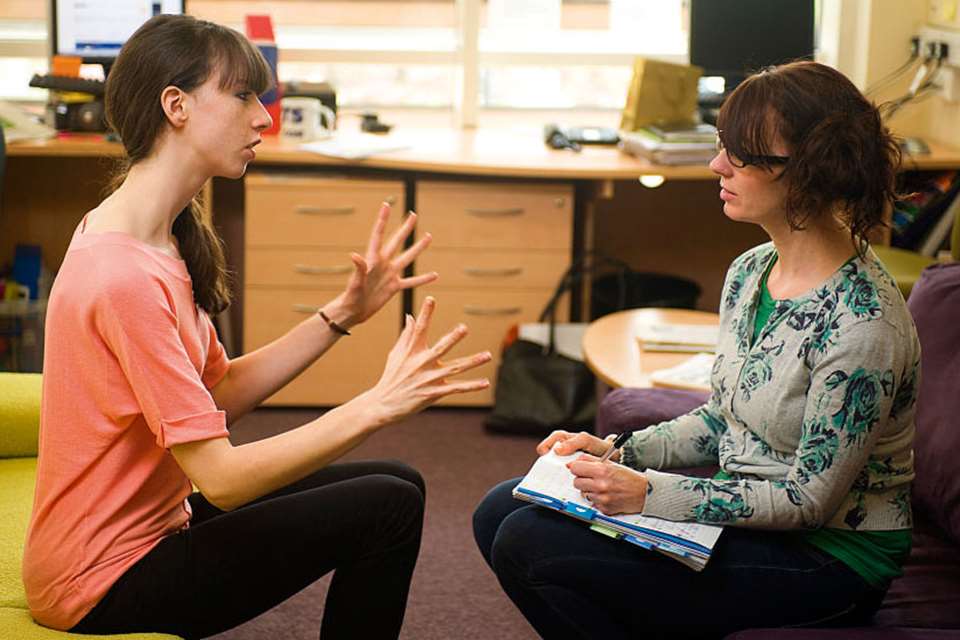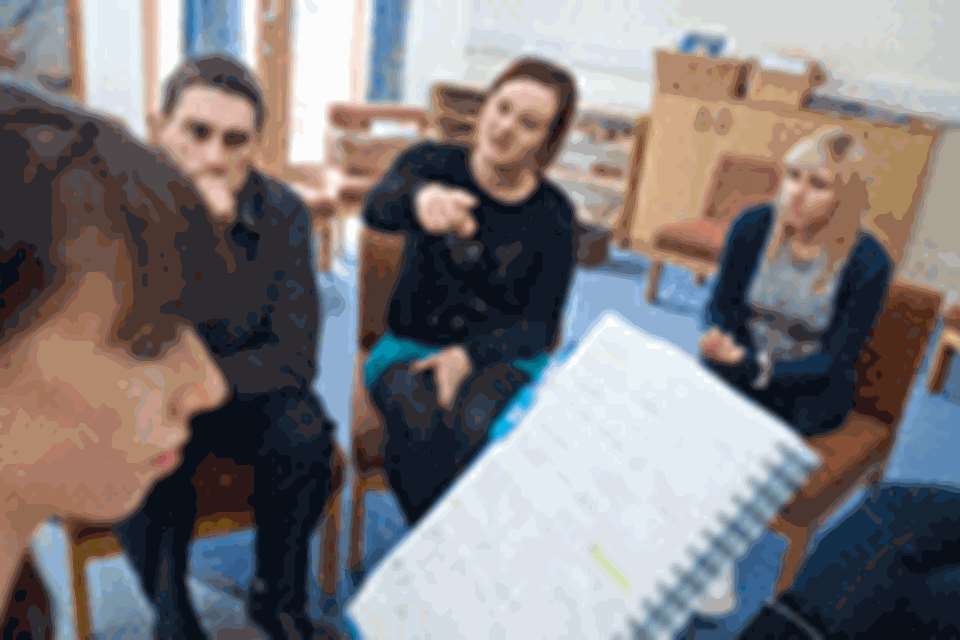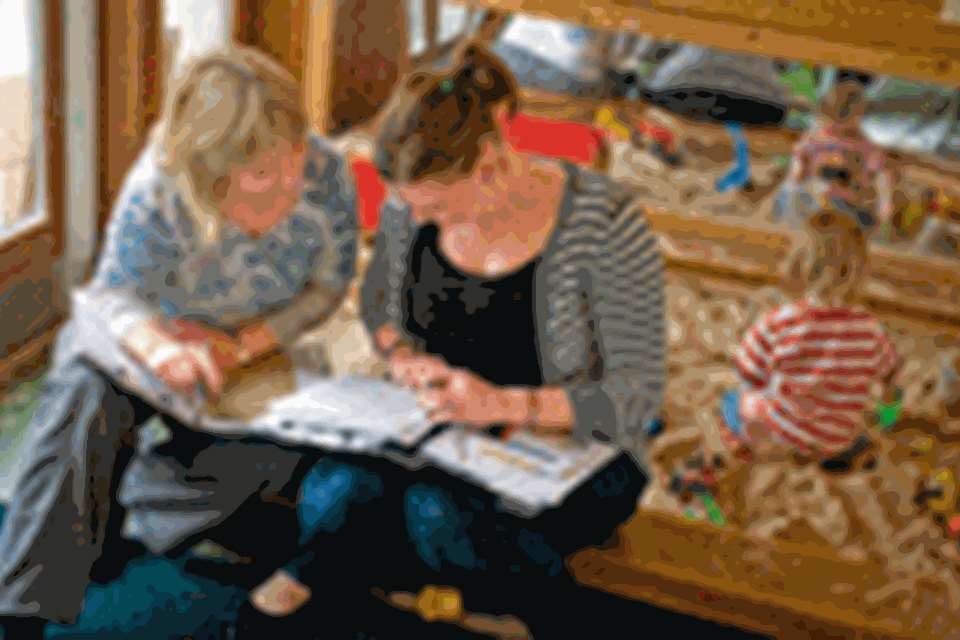Positive Relationships: Supervision - Speaking personally
Ruth Thomson
Monday, February 24, 2014
Interpretations of what good staff supervision entails may vary, but Caroline Vollans has discovered the benefits of an emotional focus.

Supervision has been a legal requirement in the Early Years Foundation Stage since 2012. Yet many early years settings are not providing it, and the ones that do have different interpretations of what it entails.
The Statutory Framework for the Early Years Foundation Stage states that 'providers must put appropriate arrangements in place for the supervision of staff who have contact with children and families. Effective supervision provides support, coaching and training for the practitioner and promotes the interests of children'.
However, Dr Peter Elfer, principal lecturer in Early Childhood Studies at the University of Roehampton, London, considers that supervision is 'to support the practitioner to be more effective by helping her or him think about the emotions that are evoked in working closely with young children and how they affect our work'. This puts much more emphasis on recognising the emotional aspects, and much less on management, coaching and training.
So, when I was asked last summer to offer supervision to an early years staff team, I was interested to explore this relatively new area. The head of this integrated early years centre knew I was an experienced teacher and psychoanalyst. She thought my skills and knowledge were fitting to the role. Now, eight months in, I would like to share my thoughts.
A CONFIDENTIAL SPACE
The head wanted her staff to be offered 'something good' - a confidential space where each practitioner could talk about their work. That was about the extent of my remit and guidelines. I considered this freedom to be a gift; but, on the other hand, it was quite a daunting prospect. Without a fixed remit, there is the potential for creativity and for something to emerge. But, equally, a space without structure or a specific agenda can feel almost too free, in the same way that a blank canvas is often a difficult place to start painting.
I would need something to get me started - an initial anchorage point for the work and for me. The question was where to find this. I turned to other early years settings to see what was happening, and found that, in all the cases I looked at, a manager had taken on the role of supervisor. This is a quite different prospect to meeting with a supervisor like me, external to the team, and not early-years-trained. The sessions with me would certainly not be managerial - so what would they be?
I knew from the start that they would need to evolve and grow over time. I did not want to set out with a formula or template. That would have been too determined by me, and it would inhibit the potential for something new. For example, I was clear that I did not want to start off with a list of items to cover. While a checklist can be handy for getting a conversation started, I did not want the sessions to be shaped by one.
GETTING PERSONAL
In psychoanalysis, there is an established framework for the discussion of so-called 'emotional' issues and factors in your work. This seems to be much rarer in early years practice, where it is not so commonplace to speak personally of matters such as the connections between one's work and one's emotions, and how one influences the other. Supervision in the early years could be a place for this exploration of emotional factors. But this requires caution.
It would not be my intention to bring psychoanalysis into supervision. Supervision is in the workplace: after a session, the practitioner goes straight back to the nursery floor. So it would be highly inappropriate to encourage a practitioner to 'open up' about highly personal issues in a session. Getting through the day and being able to continue to work with your team and the children are of paramount importance; therefore supervision that prevents this would not only be self-defeating, but also a nonsense.
That said, working in an early years setting includes daily encounters with separation, transitions, losses, questions around authority, dealing with limits and boundaries and difficult interactions between staff: in short, many 'psychoanalytical' themes.
For some members of staff, the opportunity to stand off and think about some of these areas could be a helpful intervention. For example, if a child is having problems during settling, those difficulties could be made worse if the key person is someone who finds endings difficult. Speaking about this could help to shift things for both the key person and the child.
So, while supervision is clearly not the place for therapy, it could provide a place for airing and acknowledging personal factors that might be influencing practice. Needless to say, this is delicate work.
LISTEN AND CONSIDER
Eight months into the work, my position as supervisor is starting to become clearer. I think that my main job is to listen and consider each person being supervised individually: because the sessions are based on listening and responding to what the member of staff says, each one is inherently unique. Practitioners come to the sessions with many ways of speaking about their work. For example, they might speak of a practical, day-to-day management issue, an aspect of staff relations, the behaviour of a particular child, a difficulty with a parent's boundaries, or something that is causing them a lot of frustration, anger or sadness.
My remit is to encourage an engagement with, and development of, what is said - and, at times, what is not said. I want to be clear that, unlike many other professionals influenced by psychoanalysis or counselling, I do not give privilege to the so-called 'emotional' over other ways of speaking, thinking through and addressing issues.
Getting started can be the trickiest part of the session. There are strategies that can be useful here: looking over the list of key children can be a way in, highlighting those who aren't often talked about; or thinking about an aspect of work that was especially pleasing or not, pursuing what it was that was 'all good'. Often the most surprising and useful conversations come about during sessions in which the practitioner thinks they have 'nothing to say'.
I have found it can be advantageous that I am not involved in the day-to-day running of the centre, and am not a trained early years practitioner. I will ask the questions that someone who is more 'in the know' might not - my ignorance can be useful in thinking about what is otherwise accepted as a given. I think, too, that my hands-on experience as a teacher (I still teach part-time) is useful in keeping me connected to the day-to-day demands and realities of working with young children.
Time out from a relentlessly busy schedule may feel unnerving at first and even a waste of time - we become used to just getting on, being organised and getting through our 'to do' lists without stopping to reflect. Supervision requires a lot of time, organisation and effort if it is to happen regularly, so it is important that staff find it valuable.
Ultimately, early years settings are faced with a choice: is supervision another aspect of staff management, going through competencies and ticking things off as they arise? Or is it about creating a more open and freer space for thinking and talking about the work with the children and their families? My experience so far suggests that a more open approach helps staff to think more creatively about their work and relationships in the team. A space like that is vital in a constantly busy and demanding early years environment.
Caroline Vollans is a psychoanalyst and teacher.
www.carolinevollans.yolasite.com
[asset_library_tag 334,Download the PDF]









